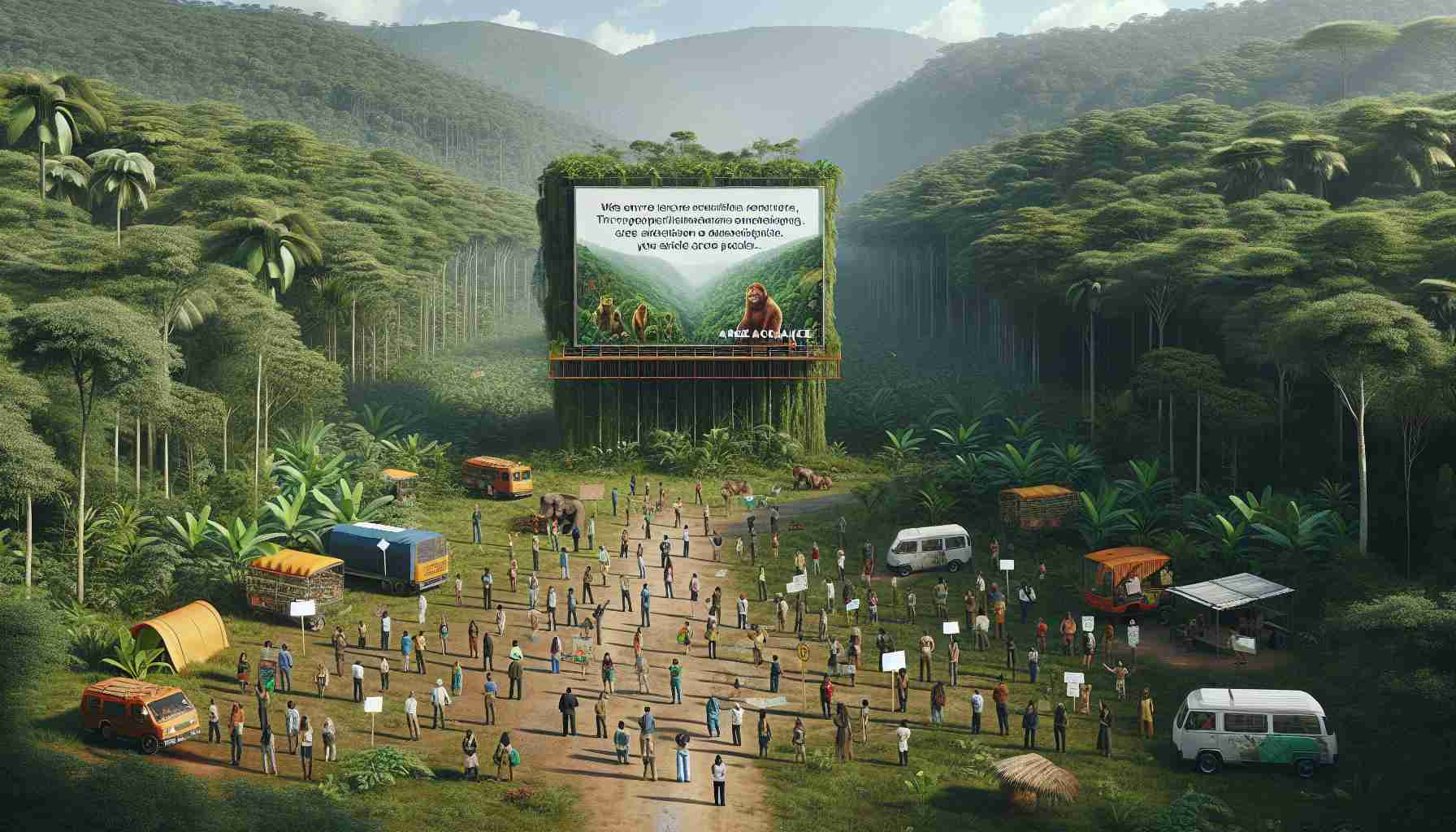The Amazon Rainforest, a critical ecosystem teetering on the brink of destruction, is now the centerpiece of a novel environmental campaign. Vivo, lauded as the greenest company in Brazil and all of Latin America, has collaborated with indigenous peoples and environmental groups to introduce the eye-opening “Amazon Desert Rally.”
Mirroring a chapter from dystopian fiction, the “Amazon Desert Rally” is a fictive event designed by Vivo to highlight the pressing issue of river depletion in the Amazon due to rampant deforestation. Vivo’s creative partner, Africa Creative, crafted the concept, emphasizing the severe loss of 120 trillion liters of water from Amazonian rivers in the current year, largely due to unlawful logging.
Recent scientific insights published in Nature have illuminated that 40% of Amazon logging is unauthorized, with annual forest loss paralleling the size of Denmark. This unregulated practice has invaded indigenous forest management areas, exacerbating an already dire situation.
The campaign spotlights a staging of a race in a future where the Amazon has succumbed to desertification, filmed over the dry riverbeds of Rio Branco in Roraima. It features the local Paiter Surui community, whose very existence is intertwined with that of the rainforest.
Vivo has taken a public stance with its slogan, “Don’t sponsor this race,” advocating for eco-conscious consumer behavior and sustainable wood sourcing. Fernando Julianelli, the CEO of Vicar, alongside Stock Car, has emphasized the power of consumer choices in aiding rainforest conservation efforts.
IPAM (Amazon Environmental Research Institute), along with the Paiter Suruí community and Stock Car, backed Vivo’s campaign for awareness and action.
In a powerful display of art and activism, Black Madre visual arts studio created seven woodcut printed posters, a medium chosen for its stark and impactful visual language. These posters were adorned with art by seven indigenous artists to underline the consequences of deforestation. Exhibitions at MAM (Museum of Modern Art) further pushed the campaign’s message.
Paulo Moutinho, a senior IPAM researcher, eloquently envisioned a world where nature thrives and humanity coexists in balance with the environment. Vivo’s promise as the Official Non-Sponsor emphasizes its commitment to responsible wood usage and the fight against illegal deforestation.
While the “Amazon Desert Rally” might be a creative figment, the threat posed to the Amazon is most certainly real. The campaign aims to rally public sentiment towards preserving the invaluable Amazon for the future.
The campaign discussed emphasizes the critical situation of the Amazon Rainforest, which continues to face severe deforestation and degradation, threatening indescribable levels of biodiversity loss. Here are supplementary facts and considerations:
– The Amazon Rainforest is often termed the “lungs of the Earth” due to its immense capacity to absorb carbon dioxide and produce oxygen. This plays a crucial role in mitigating climate change.
– The Amazon is not only home to a vast number of plant and animal species but also over 30 million people, including 350 different ethnic groups with unique cultures and languages. Many of these are uncontacted indigenous tribes.
– Deforestation in the Amazon has multiple drivers including commercial agriculture, cattle ranching, infrastructure projects, mining, and illegal logging.
– The Brazilian Space Research Institute (INPE) provides data on deforestation rates in the Amazon through satellite imagery, which shows a worrying increase in recent years.
Key Challenges and Controversies:
– Enforcement: One of the major challenges is the enforcement of existing environmental laws within the Amazon. Illegal activities flourish due to insufficient monitoring and lax enforcement.
– Political will: Political agendas and economic pressures often detract from strong environmental policy-making, leading to controversial decisions that may prioritize short-term economic gains over long-term conservation.
– Sustainable development: Finding a balance between the development needs of the local population and the conservation of the rainforest remains a complex issue.
Advantages and Disadvantages:
– Advantages: Innovative campaigns like the “Amazon Desert Rally” raise global awareness and can lead to increased public pressure on governments and corporations to act responsibly. It also emphasizes the importance of conscious consumer behavior and may stimulate demand for sustainably sourced products.
– Disadvantages: While campaigns bring attention, they might not always translate into concrete policy change or effective conservation measures. Other critics may argue that such campaigns can oversimplify complex issues or lack inclusivity of all stakeholders affected by deforestation.
For those seeking further information and wanting to stay updated on the situation in the Amazon, reputable sources include the Greenpeace and World Wildlife Fund websites. These organizations regularly provide updates, insights, and ways for individuals to get involved in the conservation efforts for the Amazon and other critical ecosystems.
The source of the article is from the blog krama.net
